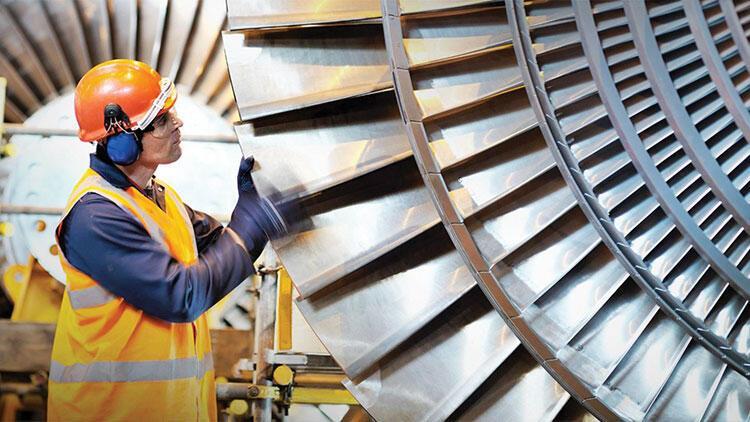
The headline Türkiye manufacturing Purchasing Managers’ Index (PMI) dipped to 46.4 in October from 46.9 in September, according to a survey conducted jointly by the Istanbul Chamber of Industry (ISO) and S&P Global.
The index posted below the 50 no-change mark for the eighth consecutive month, signaling a solid moderation in the health of the sector.
Any figure greater than 50 indicates overall improvement in the sector.
Both new orders and production slowed, while firms scaled back their purchasing activity and employment accordingly. Meanwhile, suppliers’ delivery times shortened amid a lack of demand for inputs, the survey said.
“Central to the latest moderation in business conditions was a further softening of new orders, which eased for the 13th month running amid a lack of demand. A similarly sharp slowdown in new export orders was recorded.”
Demand weakness fed through to an easing in output over the month, albeit one that was the least marked since May.
Manufacturers responded to softer new orders by scaling back their purchasing activity and employment in October. In particular, the easing of staffing levels accelerated to the fastest
since May 2020.
“The slowdown in input buying meant that pressure on supply chains was reduced, helping lead to a shortening of delivery times,” the survey said, adding that the improvement in vendor performance was the first in 34 months and most pronounced since September 2014.
Input costs on the rise
Input costs and output prices continued to increase sharply in October, although in both cases rates of inflation softened from the previous survey period.
“Subdued demand conditions kept the Turkish manufacturing sector on the back foot in October, with weakness in international demand increasingly to the fore,” commented Andrew Harker, economics director at S&P Global Market
Intelligence.
“With requirements to satisfy new work easing, firms looked to scale back both employment and purchasing activity, the latter providing some respite for suppliers and enabling them to speed up their deliveries to the greatest extent in just over eight years, thus lessening one of the obstacles to growth in the sector,” he said.